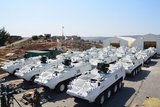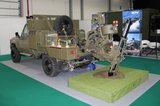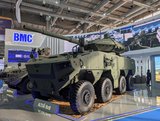Poland places FMS request for Javelin missiles
Poland has requested 180 Javelin missiles and 79 Javelin Command Launch Units (CLUs) from the US through the FMS process. The deal is estimated to be worth $100 million.
The Defense Security Cooperation Agency (DSCA) has issued a certification notifying the US Congress of the potential sale which was provided on 4 March.
According to a DSCA statement, the sale would ‘help Poland build its long-term defence capacity to defend its sovereignty and territorial integrity…Poland will have no difficulty absorbing this system into its armed forces’.
Alongside the above, the request also asks for basic skill trainers, missile simulation rounds, battery coolant units, toolkits, modified two-level maintenance parts, training, transportation and other logistical support.
If the deal is approved, Raytheon and Lockheed Martin will be the main contractors. No offset arrangements have been outlined but Poland usually includes them in their defence contracts.
Related Equipment in Defence Insight
More from Land Warfare
-
![British Army’s Project Stokes 120mm mortar bids due in March 2026]()
British Army’s Project Stokes 120mm mortar bids due in March 2026
Project Stokes could see a new 120mm mortar capability enter British service, with domestic production and international partnerships central to competing bids.
-
![World Defense Show 2026: Large vehicles and counter-drone systems take the limelight]()
World Defense Show 2026: Large vehicles and counter-drone systems take the limelight
Visitors who attended the first World Defense Show four years ago continue to speak of the difficulties they faced with poor facilities and power problems. This year’s event emphasised its status as one of the major defence expositions and as a place where regional players and those less welcome at other shows could take centre stage.
-
![MKJ Warrior Series — The Nett Warrior Qualified Connector for Today’s Soldier Systems]()
MKJ Warrior Series — The Nett Warrior Qualified Connector for Today’s Soldier Systems
ITT Cannon’s MKJ Warrior connectors are designed for the harshest environments, delivering mission critical comms, navigation and USB data/power.























